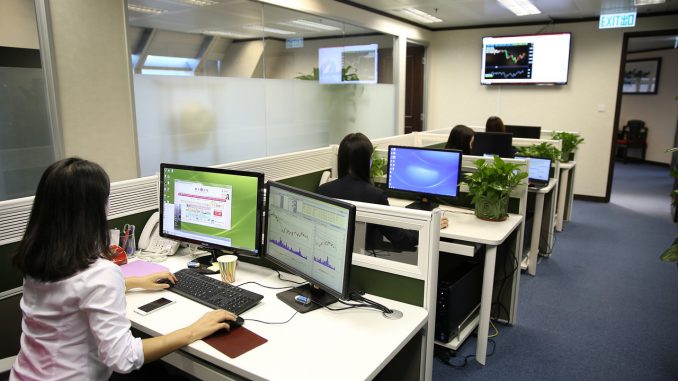
The increase in household demand has so far enabled certain branches of the commercial sector to maintain their dynamism. Nearly 57% of traders affected by the crisis have benefited from state financial assistance.
The resistance of local shops and distribution, faced with the economic impact of Covid-19, is evident in the parliamentary debate on the Finance Bill 2021. An inevitable fact if we consider that this is a sector considered as the second largest provider of employment in the country, with more than 1.7 million people concerned. As such, the data communicated by the government to the members of the first legislative body show a mixed behaviour of the various branches of commercial activity in the face of the crisis. The data mainly show the share that the sector will receive in the GDP of 2020, which is expected to exceed 9%. “Businesses supplying basic necessities have been able to maintain the momentum of their activity, thanks to the increase in household demand for essential products, particularly general food and hygiene products,” says the diagnosis shared with the deputies.
However, the lights were not green in all segments. A heavy blow was dealt by the goods trade, mainly furniture, household appliances and leisure, due to the cessation of activity in 71% of the branches. Government statistics show that more than 84% of shopkeepers suffered a significant decline in their activities, with the exception of commercial operators who were able to make use of e-commerce.
Rescue mechanism for the next few months, the State should integrate several categories of traders into the financing circuit. So far, more than 57% of traders have been able to access it during these exceptional circumstances. The short-term solution is based on digitalisation offers that could mitigate the drop in sales. “Despite the still weak positioning of our country, which ranks 95th in the world in the e-commerce index, there is significant room for improvement, provided that vigorous action is taken in terms of accelerating the digitalisation of entire sections of the sector,” the Executive’s roadmap points out. The main path currently advocated by the government will be preceded by a deep reflection to develop this niche, taking into account the specificities of the Moroccan population. The objective is to set up payment platforms that are easy to use by traders and consumers. Nevertheless, local commerce remains of prime importance for the Executive, and should benefit from the contribution of the regional commercial logistics zones, to better support the storage and transport of products and commercial goods. It should be noted that mobile payments increased by around 710% between March and May 2020. This indicator would be an encouraging factor for the implementation of the support mechanism for commercial branches hit by the crisis.
Chambers of Commerce called to reinvent themselves
In addition to the legal overhaul of the missions of the Chambers of Commerce, development plans are also among the priorities for 2021. A new generation of projects, with the main requirement being their impact at regional level, remains the main objective. The planned measures cover all the parameters likely to transform the current chambers into establishments that live up to expectations. The budget allocated to the achievement of these strategic objectives exceeds 452 MDH, of which 6.3 MDH will be reserved by the Ministry of Industry to support the CCIS over four years. Several requirements will be imposed on the Chambers of Commerce with a view to analysing the guarantees of viability and sustainability provided by the setting up of the projects. The main requirement remains the impact on the creation of direct employment for the inhabitants of each region. A progress report will also be carried out “for the adjustment of the amounts of the projects and possibly for the definition of the complementary actions necessary for the perpetuation of the development plan of the CCIS and their federation”. Recruitment needs per year and per profile will be determined for the period 2021-2022, adds the roadmap relating to the Chambers of Commerce development plans. A monitoring committee, set up within the Ministry, will also be responsible for taking decisions on the granting of financial support from the State for the achievement of the objectives set out in the calls for projects.




Be the first to comment